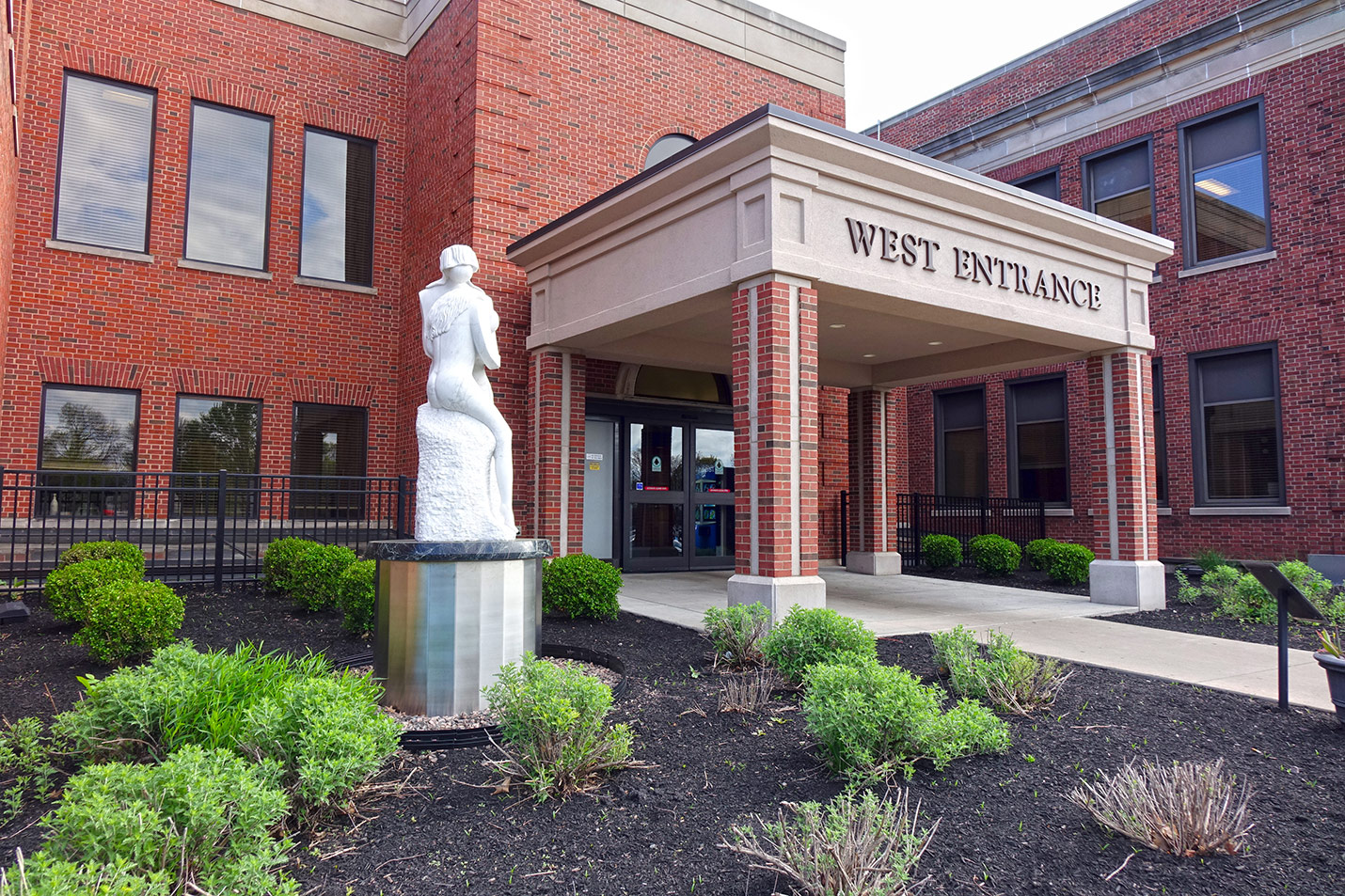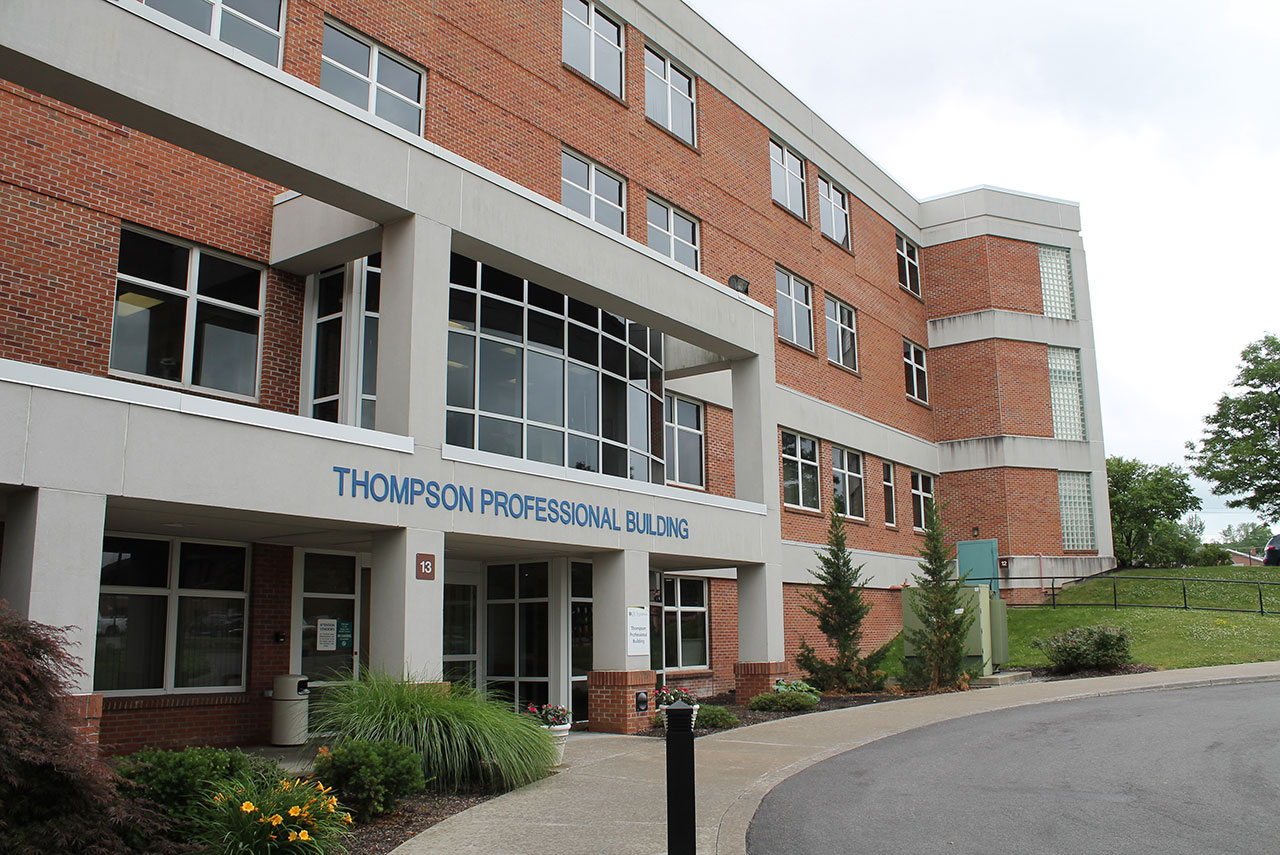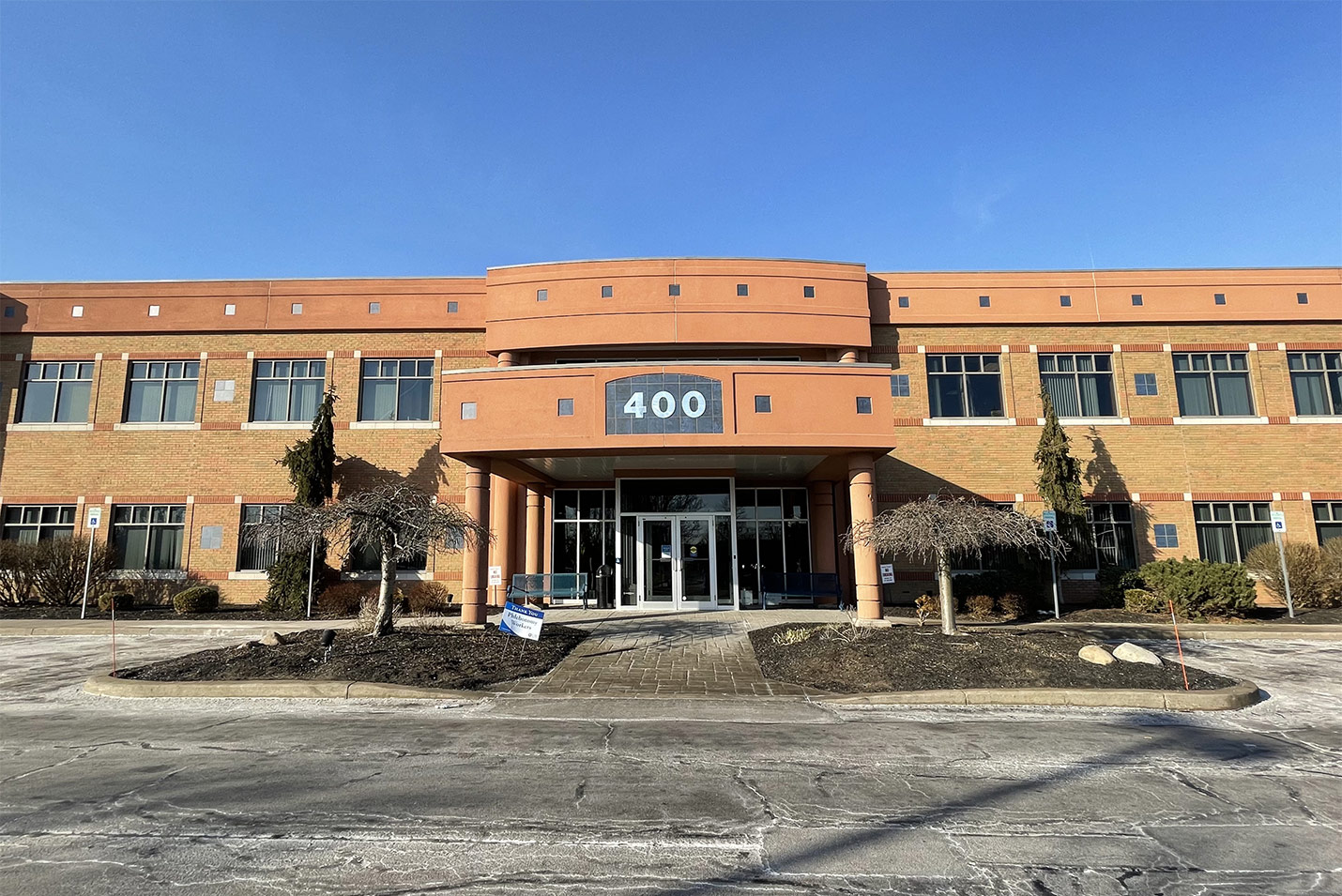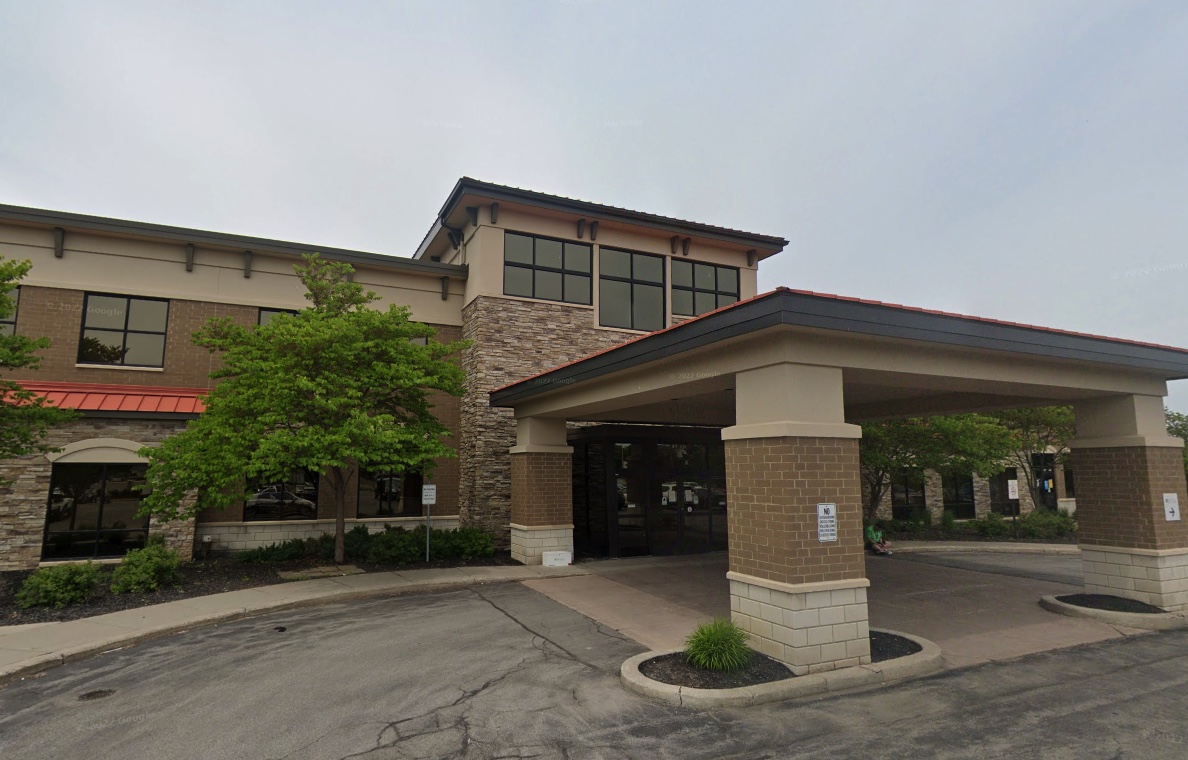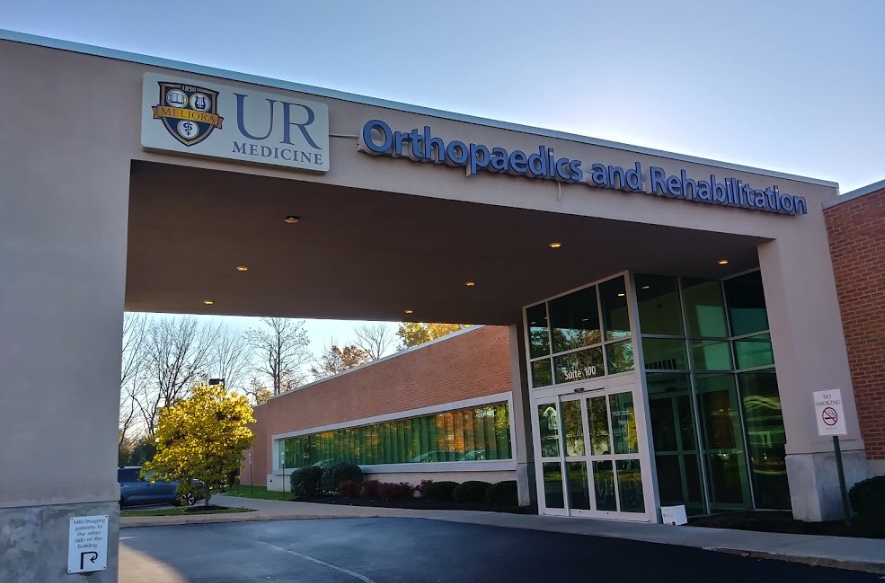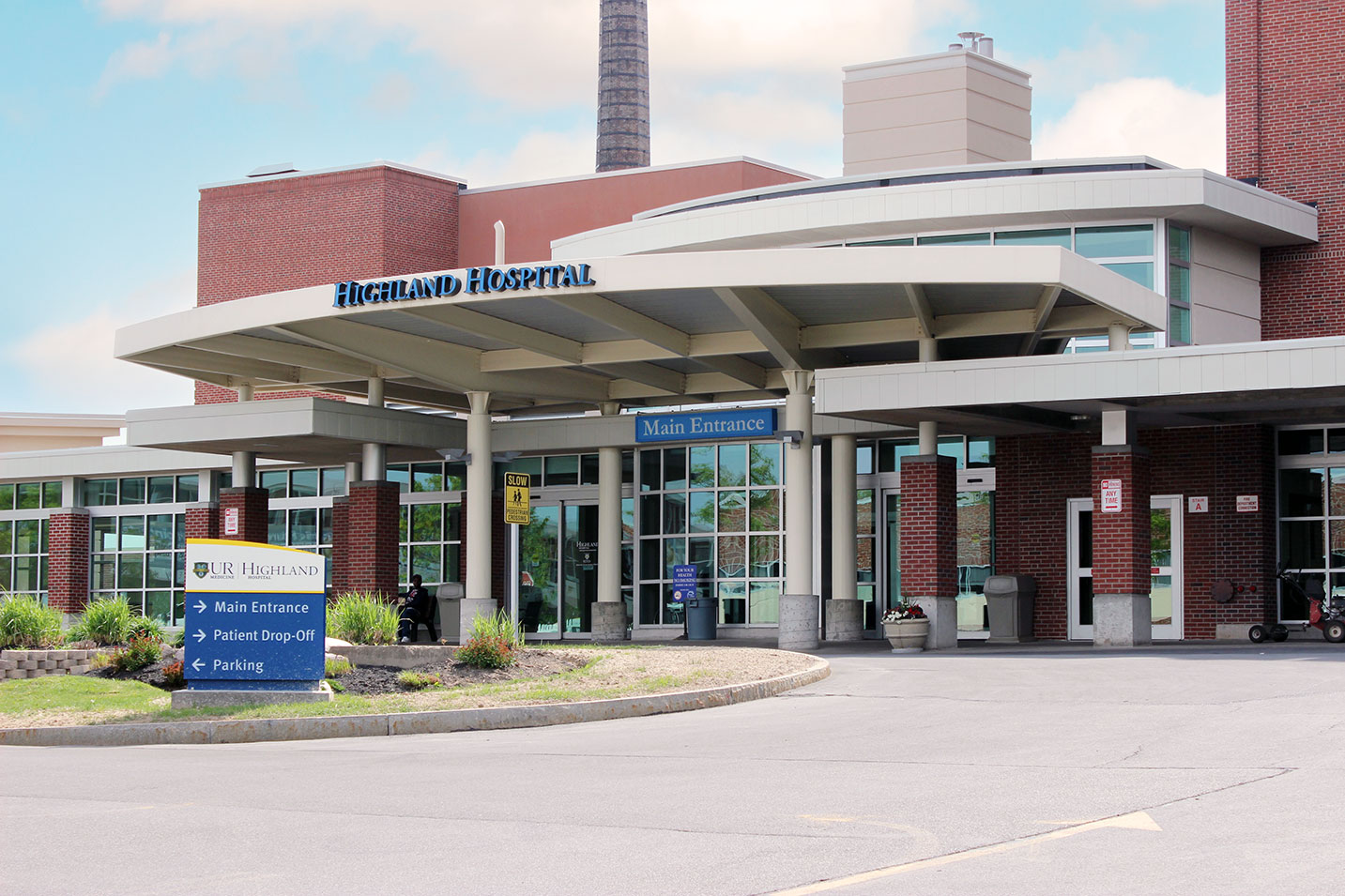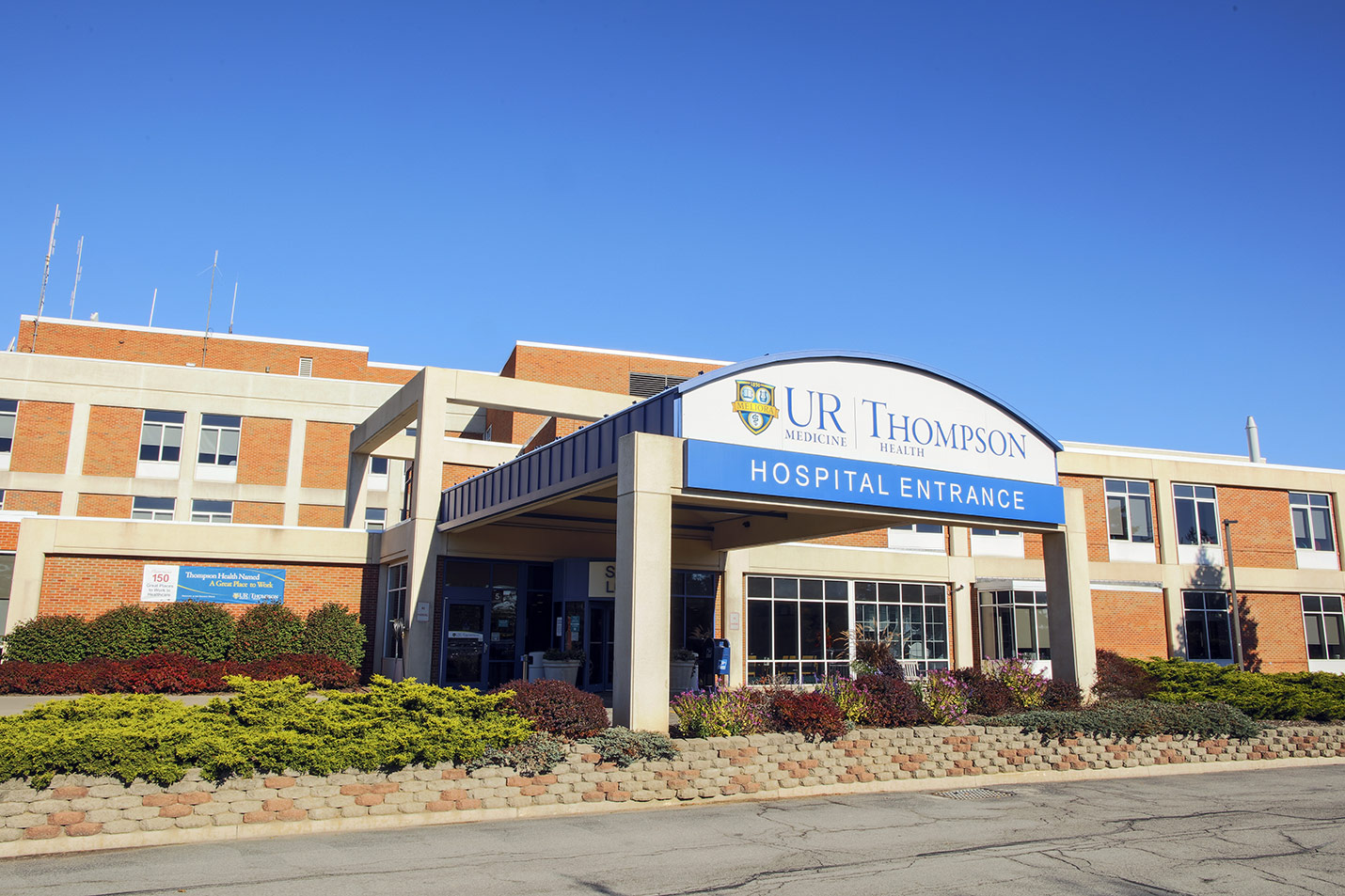Spondyloarthritis
Make Appointments & Get Care
What is Spondyloarthritis?
Spondyloarthritis is a form of arthritis that affects primarily the spine, but it can also cause arthritis in large joints and cause inflammation where tendons and ligaments attach to bones.
Types of spondyloarthritis include:
- Ankylosing spondylitis
- Reactive arthritis (formerly called Reiter’s syndrome)
- Enteropathic spondylitis
- Psoriatic arthritis
UR Medicine's Treatments for Spondyloarthritis
Early diagnosis and treatment are important. Our experienced health care workers provide diagnostic testing, education, physical activity programs, and the latest medicines—some of them delivered in our state-of-the-art infusion center.
One of our expert rheumatologists will make a diagnosis based on exam findings, blood tests, X-rays, and sometimes an MRI. We’ll also order tests or consult with other specialists as needed to look for inflammation in other organs.
Spondyloarthritis is usually treated by a rheumatologist (autoimmune diseases), however, some types of spondyloarthritis are associated with other diseases. For example, spondyloarthritis can occur with inflammatory bowel disease. In this case, both a rheumatologist and gastroenterologist (stomach and intestines) may be managing your illness.
There is no cure for spondyloarthritis. Symptoms vary, so we tailor treatment to each individual. Medications can improve pain and swelling and help prevent joint damage. Physical and occupational therapy can help preserve motion in the spine.
Treatments Include:
Medications
- Non-steroidal Anti-inflammatory Drugs (NSAIDs): NSAIDs reduce or relieve pain and help reduce swelling in your joints so you feel better. Some NSAIDs, such as ibuprofen and naproxen, are available over the counter. Others require a prescription.
- Corticosteroid Injections: Sometimes pain and swelling are localized to one joint or tendon. An injection of corticosteroids can be very effective in controlling symptoms in that area.
- Disease Modifying Anti-Rheumatic Drugs (DMARDs): These medications decrease inflammation and may protect joints from permanent damage. DMARDS take several weeks to begin working. Sulfasalazine is an example.
- Biologics: Biologics are medications that block proteins which cause inflammation and cause joint damage. Biologics cannot be taken orally. Examples include etanercept and infliximab.
Surgery
In patients with extensive symptoms in the hip area, hip replacement can help restore a more active lifestyle.
Lifestyle Changes
- Healthy Eating: The right combination of different foods can help you feel your best and maintain a healthy weight. Foods rich in omega-3s and antioxidants may help control inflammation. UR Medicine nutritionists can help you develop a diet plan that works best for you. (Learn how UR Medicine Center for Community Health's Improve Nutrition Program can help).
- Staying Active: Physical activity will improve your energy level, decrease stiffness, increase range of movement, elevate mood, and increase bone strength. People with lupus can safely exercise with the proper program, and we have informational materials to get you started. UR Medicine physical therapists can also work with you to devise an exercise regimen that’s best for you. (Learn more about the UR Medicine Physical Therapy program.)
- Smoking Cessation: Smoking makes symptoms for people with spondyloarthritis worse. Our team of physicians, nurse practitioners, and lifestyle counselors can help you develop a plan to quit. (Learn more about the UR Medicine Stop Smoking Program.)
What Sets Us Apart?
A Better Approach to Spondyloarthritis
Because we’re an academic medical center, our physicians also lead research into better treatments and cures. Our experts have published numerous articles in national journals, and they work collaboratively with other specialists to create ideal treatment plans for patients.
Onsite Infusion Center
Some people with spondyloarthritis and other autoimmune diseases need medications that can’t be taken at home. Two of our rheumatology clinics (Lattimore Road in Rochester and Red Creek Drive in Henrietta) have an Infusion Center where patients can receive these medications in comfort and with privacy. Nurses in the Infusion Center will also provide patients with support and education.

Image: Infusion Center at our UR Rheumatology Lattimore Road location
Locations
View All LocationsWe serve you in the Rochester metropolitan area and surrounding region.
View All Locations9 locations
Lattimore Medical Center
125 Lattimore Road, Suite G-110
Rochester, NY 14620
Thompson Professional Building
395 West Street, Suite 007
Canandaigua, NY 14424
Red Creek (Calkins Corporate Park)
400 Red Creek Drive, Suite 240
Rochester, NY 14623
South Pointe Landing
10 South Pointe Landing, Suite 100
Rochester, NY 14626
Omnitech Park
7670 Omnitech Place
Victor, NY 14564
Platinum Office Complex
2064 Fairport Nine Mile Point Road, Suite 100
Penfield, NY 14526
Highland Hospital
1000 South Avenue
Rochester, NY 14620
FF Thompson Hospital
350 Parrish Street
Canandaigua, NY 14424
48 East South Street, Suite 200
Geneseo, NY 14454
Patient Education & Support
If you have questions about your illness or medications, ask your doctor. You may also find these resources helpful.
Clinical Trials
Our researchers are studying ways to improve treatment and quality of life of people with spondyloarthritis. You may wish to help others by participating in a clinical study while receiving the newest treatment available.
Email Us